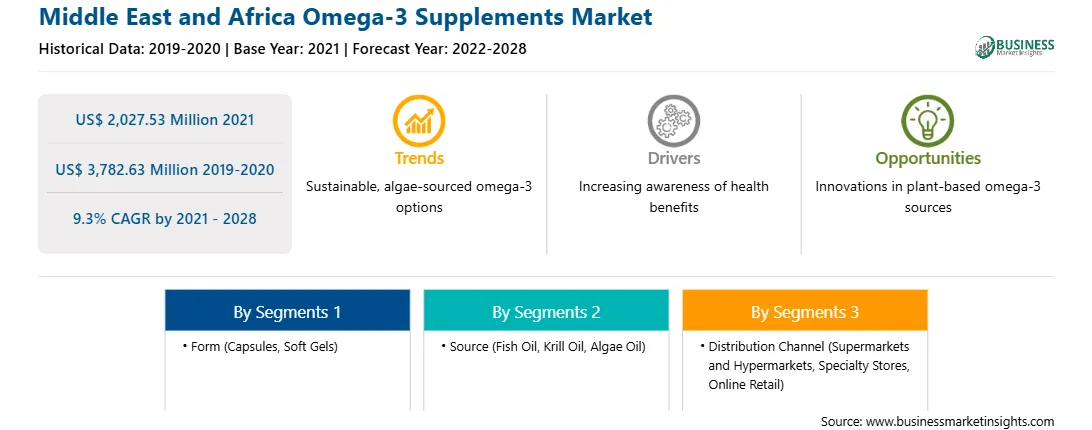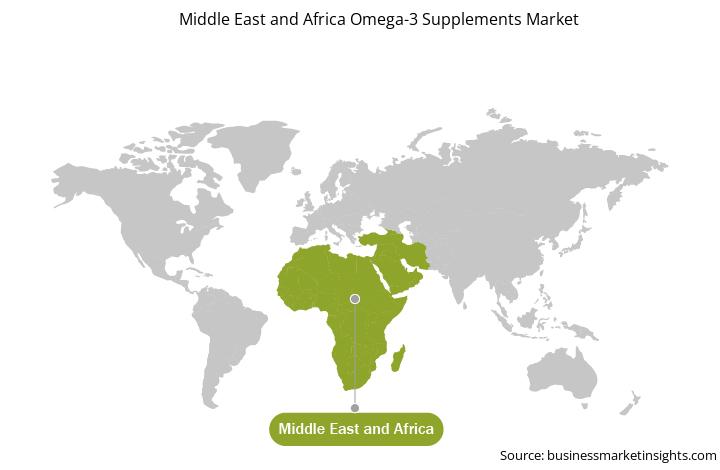The vegan population in developed countries has increased rapidly in the past few years. Preventing the exploitation environment is the key reason for consumers' preference toward a vegan diet, due to which there is a rising demand for plant-based dietary supplements in the market. Omega- 3 fatty acids are majorly produced from fish, algae, krill, etc. However, factors such as overfishing and environmental issues, such as ocean warming, have prompted consumers to include viable and sustainable alternative sources of omega-3, which do not contribute to the depletion of natural resources. Various plant-based sources such as flax seeds, chia seeds, ahiflower, walnuts, hemp seeds, seaweed, and algae are also enriched with omega-3 fatty acids. Apart from this, consumers’ shift toward a healthier lifestyle has raised the popularity of flexitarian, vegetarian, and vegan diets, which has opened up exciting opportunities for omega- 3 supplements manufacturers. These companies are trying to develop innovative products by using minimal or no animal-derived ingredients. For instance, DSM Life's OMEGA is a unique, plant-based alternative to fish oil-based products, containing at least 500 mg/g of EPA and DHA in the triglyceride form, derived from a vegetarian source. Thus, the escalating consumer preferences toward vegan supplements is giving rise to several key trends that will boost the dietary supplements market growth in the coming years.
Turkey, South Africa, Iraq, and Israel are among the major countries in the Middle East & Africa, which have reported a high number of COVID -19 cases. According to the International Finance Corporation, the COVID -19 pandemic has had a severe impact on the economy in this region, which has led to a decline in oil production, tourism, and remittances. The quarantine measures implemented for sanitary purposes in the region have led to disruptions in several activities across diverse economic sectors. The MEA comprises many growing economies, which are prospective markets for omega 3 supplements vendors. The pandemic has significantly propelled the growth of the omega 3 supplements market in the region on the back of health benefits associated with these products.
With the new features and technologies, vendors can attract new customers and expand their footprints in emerging markets. This factor is likely to drive the Middle East & Africa omega-3 supplements market. The Middle East & Africa omega-3 supplements market is expected to grow at a good CAGR during the forecast period.
Strategic insights for the Middle East and Africa Omega-3 Supplements provides data-driven analysis of the industry landscape, including current trends, key players, and regional nuances. These insights offer actionable recommendations, enabling readers to differentiate themselves from competitors by identifying untapped segments or developing unique value propositions. Leveraging data analytics, these insights help industry players anticipate the market shifts, whether investors, manufacturers, or other stakeholders. A future-oriented perspective is essential, helping stakeholders anticipate market shifts and position themselves for long-term success in this dynamic region. Ultimately, effective strategic insights empower readers to make informed decisions that drive profitability and achieve their business objectives within the market.

| Report Attribute | Details |
|---|---|
| Market size in 2021 | US$ 2,027.53 Million |
| Market Size by 2028 | US$ 3,782.63 Million |
| Global CAGR (2021 - 2028) | 9.3% |
| Historical Data | 2019-2020 |
| Forecast period | 2022-2028 |
| Segments Covered |
By Form
|
| Regions and Countries Covered | Middle East and Africa
|
| Market leaders and key company profiles |
The geographic scope of the Middle East and Africa Omega-3 Supplements refers to the specific areas in which a business operates and competes. Understanding local distinctions, such as diverse consumer preferences (e.g., demand for specific plug types or battery backup durations), varying economic conditions, and regulatory environments, is crucial for tailoring strategies to specific markets. Businesses can expand their reach by identifying underserved areas or adapting their offerings to meet local demands. A clear market focus allows for more effective resource allocation, targeted marketing campaigns, and better positioning against local competitors, ultimately driving growth in those targeted areas.

The Middle East and Africa Omega-3 Supplements Market is valued at US$ 2,027.53 Million in 2021, it is projected to reach US$ 3,782.63 Million by 2028.
As per our report Middle East and Africa Omega-3 Supplements Market, the market size is valued at US$ 2,027.53 Million in 2021, projecting it to reach US$ 3,782.63 Million by 2028. This translates to a CAGR of approximately 9.3% during the forecast period.
The Middle East and Africa Omega-3 Supplements Market report typically cover these key segments-
The historic period, base year, and forecast period can vary slightly depending on the specific market research report. However, for the Middle East and Africa Omega-3 Supplements Market report:
The Middle East and Africa Omega-3 Supplements Market is populated by several key players, each contributing to its growth and innovation. Some of the major players include:
The Middle East and Africa Omega-3 Supplements Market report is valuable for diverse stakeholders, including:
Essentially, anyone involved in or considering involvement in the Middle East and Africa Omega-3 Supplements Market value chain can benefit from the information contained in a comprehensive market report.